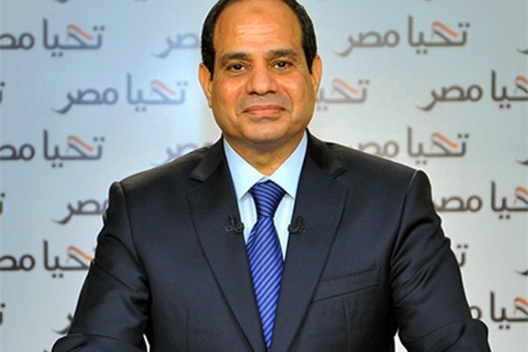 When Egyptian President Abdel Fattah al-Sisi addresses world leaders at the United Nations General Assembly (UNGA) in New York today, he will likely discuss recent political
When Egyptian President Abdel Fattah al-Sisi addresses world leaders at the United Nations General Assembly (UNGA) in New York today, he will likely discuss recent political
achievements since taking office in June. In the shadow of the rising influence of the Islamic State of Iraq and al-Sham (ISIS) and US airstrikes in Syria, Sisi will undoubtedly focus on how Egypt is combating terrorism and other security threats, and may lay out a blueprint for Egypt’s economic development in the context of parliamentary elections.
The economic portion of Sisi’s speech is meant to showcase recent reforms, while at the same time highlight challenges to reviving Egypt’s growth and development, especially in the wake of security threats. Ultimately, Sisi’s goal is to attract investment and restore investors’ confidence to support the economy and fund his mega projects. In presenting his economic vision to the international community, Sisi will position Egypt as a country in transition, working towards reform, on track to restoring confidence and revitalizing the inflow of foreign direct investment.
Sisi has already taken measures to ensure Egypt is on a path of “stability, investment, and growth,” by targeting fiscal consolidation. In July, Sisi lifted energy subsidies as the first step to reduce the staggering fiscal deficit estimates at 14 percent of GDP and to salvage public finances. Also, the Sisi government has taken measures to impose targeted tax schemes by levying an additional 5 percent income tax (for a period of three years) on taxpayers earning more than EGP 1 million a year and is hoping to introduce a full-fledged Value-Added Tax (VAT) to replace the Generalized Sales Tax (GST) this fiscal year. In doing so, Sisi is informing the international community that Egypt is on a path of reform. He is signaling to investors that his government understands the importance of fiscal discipline and is working towards reforms on all levels, including long-term structural reforms.
Moving forward, the priority of the current government is to attract investment. Sisi will likely suggest various ways the government can boost domestic and foreign investment by developing sectors like, tourism, large manufacturing, energy, housing, transportation, information technology, agriculture, and mining. But, the growth of many of these sectors is dependent on a steady and reliable energy supply. With rolling blackouts and energy shortages, the Sisi government has vowed to reduce (and eventually eliminate) payment arrears to international oil and gas companies so they can continue producing inputs necessary to generate electricity. The Sisi government has announced a $1.5 billion payment arrangement as the first step to pay off over $6 billion in debt to energy companies. Other measures include securing oil and gas supplies from Gulf Arab countries, including a reported $9 billion petroleum deal signed with the United Arab Emirates (UAE) to finance the purchase of petroleum products.
Most importantly, Sisi will try and sell a vision of prosperity with the promotion of his flagship mega project, namely the Suez Canal Regional Development Project, as the cornerstone of Egyptian nationalism and economic restoration. The multibillion project is designed to expand the Suez Canal and is expected to more than double revenue, bringing Egypt much-needed foreign currency. Despite the lack of transparency about the project, ongoing economic hardships, and energy blackouts, since announcing the financing plan for the Suez expansion plan in late August, Egypt raised $8.5 billion in revenue from bond sales in just eight days. Besides the high return rate of 12 percent, the quick sale of Suez bonds indicates restored public confidence and trust in the Sisi government, the kind of confidence Egypt’s president is hoping to convey in his debut speech.
On the sidelines of UNGA, Sisi has met with various stakeholders, including Egyptian businessmen in the US, Congressional staff, US Chamber of Commerce representatives, and the chairman of the World Economic Forum Klaus Schwab. In his meetings, Sisi has outlined his government’s vision for stabilizing the economy in an effort to attract investment. Although the primary focus of today’s speech is expected to be about political and security strategies, the underlying message will be on economic development, including education, and improvement of social services as a necessary long-term strategy to combat extremism.
Svetlana Milbert is an assistant director for the Atlantic Council’s Rafik Hariri Center with a focus on the economics of transitioning Arab countries.
